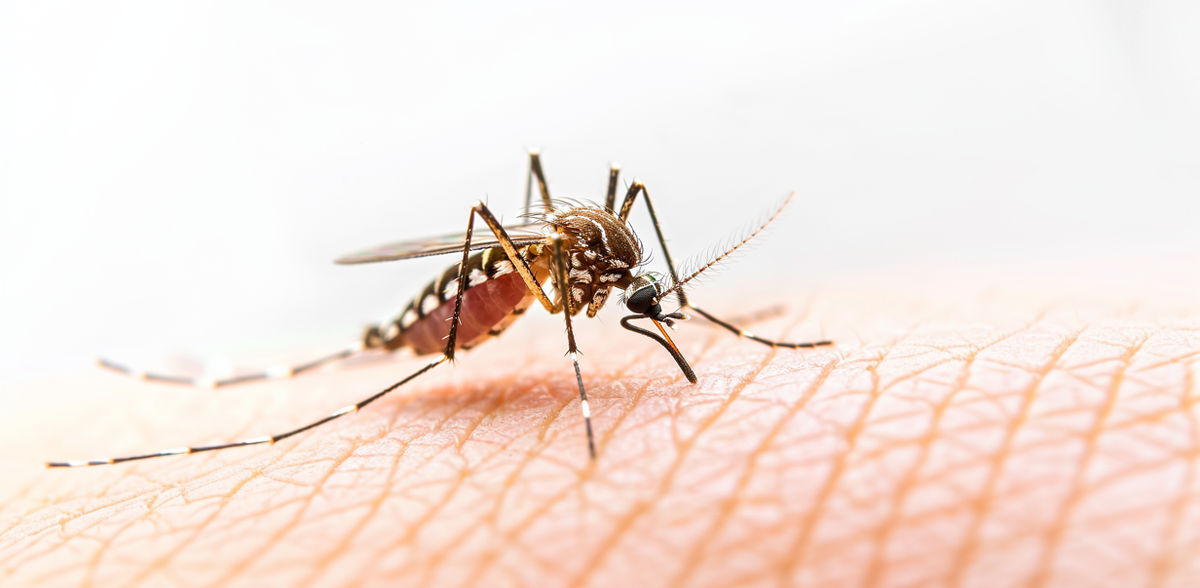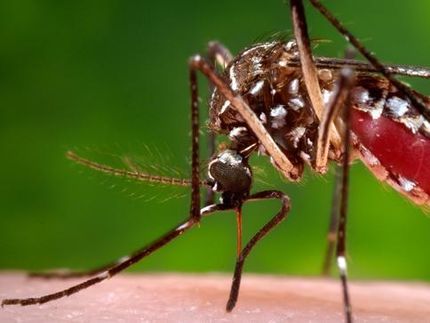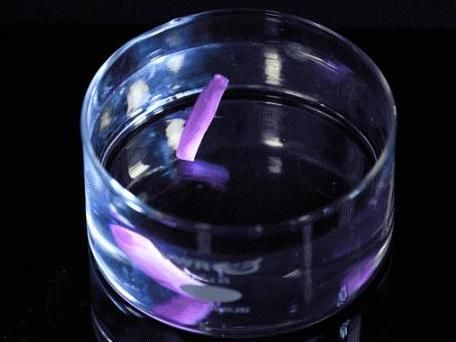How mosquito larva guts could help create highly specific insecticides
Did you know that the world’s deadliest animal is the mosquito?
Aedes aegypti is one of the most dangerous mosquito. This bug spreads viruses that cause dengue fever, which was recently declared as an epidemic in Puerto Rico. Research published in the Journal of the American Chemical Society reports new molecules that label proteins in the unique, alkaline environment of the Ae. aegypti digestive system that could help scientists develop insecticides to fight back.
Though mosquito insecticides exist, the pests are developing resistances, and advancements are needed to reduce their numbers and slow the spread of pathogens they carry, including the malaria parasite and the Zika and dengue viruses. Fortunately for scientists, the digestive system of certain mosquito larvae, including Ae. aegypti, is unique: A pH spikes at the beginning of their midgut, creating a highly alkaline region, then tapers off to a more neutral pH environment as digestion continues. So, Michael Riehle, John Jewett and colleagues wanted to develop molecular probes that would react to this change in pH, only “activating” in the alkaline portion of the midgut.
The team synthesized two base-reactive molecules and a control molecule for their test probes. These were each introduced to groups of 30 to 40 mosquito larvae, which took them up via filter feeding and passed them through their digestive systems. In the alkaline midgut, the two new base-reactive molecules underwent a series of chemical changes, allowing them to bind to proteins in the gut and be detected by the researchers using fluorescence. Larvae that ingested the control molecule did not exhibit this fluorescence. Reaching and labeling larval gut proteins with these molecular probes creates targets that could one day be used to develop new insecticides, according to the team. Additionally, since most organisms have neutral or acidic digestive systems, these alkaline-specific molecular probes wouldn’t affect them, minimizing possible side effects and making future insecticides highly specific for their target. The researchers say that this specificity and adaptability could make insecticides more resilient to change and more effective at fighting mosquito-borne illnesses.
Original publication
Most read news
Original publication
Lindsay E. Guzmán, Anjalee N. Wijetunge, Brendan F. Riske, Brooke B. Massani, Michael A. Riehle, John C. Jewett; "Chemical Probes to Interrogate the Extreme Environment of Mosquito Larval Guts"; Journal of the American Chemical Society, Volume 146, 2024-3-14
Topics
Organizations
Other news from the department science

Get the chemical industry in your inbox
By submitting this form you agree that LUMITOS AG will send you the newsletter(s) selected above by email. Your data will not be passed on to third parties. Your data will be stored and processed in accordance with our data protection regulations. LUMITOS may contact you by email for the purpose of advertising or market and opinion surveys. You can revoke your consent at any time without giving reasons to LUMITOS AG, Ernst-Augustin-Str. 2, 12489 Berlin, Germany or by e-mail at revoke@lumitos.com with effect for the future. In addition, each email contains a link to unsubscribe from the corresponding newsletter.



























































